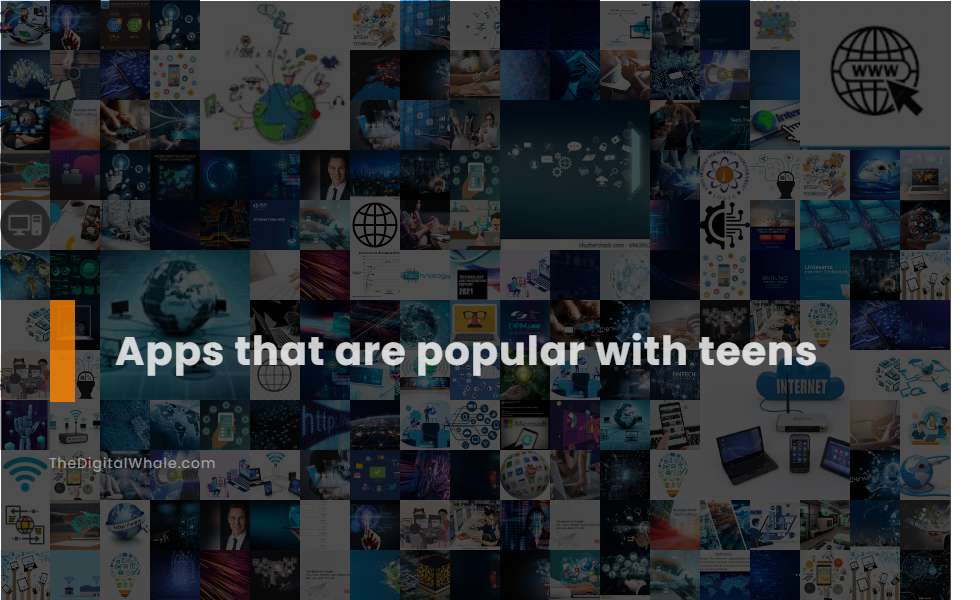Apps That Are Popular with Teens
What social media platforms are best for teens? What are some must-have apps for your teen's smartphone? Let's find out more about Apps That Are Popular with Teens.

TikTok: Short-form video sharing, public accounts, privacy settings, potential for inappropriate content.
TikTok, a popular short-form video sharing app, offers various privacy settings such as Restricted Mode, keyword filters, and private accounts to help block inappropriate content. Although these measures are not foolproof and can be bypassed by tech-savvy users, additional tools are available. For more comprehensive monitoring and content filtering, parental control apps, such as Bark, are highly recommended. For further information on how to effectively manage these settings and tools, you can visit the detailed guide on Wizcase.
Instagram: Photo and video sharing, stories, parental controls, risk of explicit content and child predators.
Instagram, a popular photo and video-sharing platform, poses risks such as exposure to explicit content and child predators. However, it has introduced new parental controls that aim to enhance safety for younger users. These controls include automatic private accounts for teens, restrictions on sensitive content, and innovative features like Hidden Words to filter negative and inappropriate content. For more details, you can visit the Vice article discussing these crucial updates.
Snapchat: Ephemeral messaging, stories, snap map, potential for sexting and inappropriate content.
Snapchat is a popular app among teens that features ephemeral messaging, stories, and a GPS-powered Snap Map. However, it also poses risks such as the potential for sexting, exposure to inappropriate content, and interactions with strangers, including drug dealers. Parents concerned about these dangers can find valuable resources on the Randolph County NC website, offering guidance on how to protect their children in the digital age.
YouTube: Video sharing, educational and entertainment content, parental controls.
YouTube is a popular platform among teens, offering a wide range of video sharing, educational, and entertainment content. Parents can utilize various parental controls, including supervised accounts with adjustable content settings, screen time limits, and the ability to block channels, to ensure a safe and managed viewing experience for their children. For more information on these features, you can explore the YouTube Family Page.
Discord: Voice and text chat, servers, private messaging, popular in gaming communities.
Discord is a popular platform among teens, especially in gaming communities, offering voice and text chat, customizable servers, and private messaging. It allows users to create or join servers with various channels, engage in high-quality streaming, and use features like custom emoji, stickers, and soundboard effects to enhance their communication experience.
Related:
What are the most common reasons for pornography use among adolescents? What is the average amount of pornography exposure that high school students report? Let's find out more about The Impact of Internet Pornography On Teenagers.
Roblox: User-generated games, social features, educational potential, risk of online interactions with strangers.
Roblox is a popular platform among teens, offering user-generated games, robust social features, and educational potential through creative and interactive experiences. However, it also poses risks such as online interactions with strangers, highlighting the need for enhanced safety measures and parental oversight to protect younger users. For a detailed analysis of these demographics and the importance of safety, you can visit the Roblox Player Demographics page on Max Power Gaming's website.
BeReal: Music streaming, gaming elements, moderated chat rooms, age verification.
BeReal does not focus on music streaming, gaming elements, or moderated chat rooms. It emphasizes authenticity by prompting users to share unfiltered, unedited photos of their daily lives at random times, with no follower counts, ads, or private messaging functions, and it has a 13+ age restriction though limited parental controls. To get an in-depth understanding of the platform's unique approach, you can explore the BeReal Review available online, which delves deeper into its features and impact on social media dynamics.
Yubo: Live streaming, chatting, age verification, risk of bullying and inappropriate communications.
Yubo is a social media app that focuses on live streaming and chatting, with features like age verification to separate under-18s and adults, and AI filters to moderate content and prevent bullying, inappropriate communications, and exploitation. Despite these measures, risks such as underage access and grooming still exist. For more insight into these aspects, parents can visit the Internet Matters website to stay informed about how to guide and protect their children in the digital space.
weBelong: Toxic-free design, sharing posts and videos, age verification, parental consent.
weBelong is a social media platform designed to provide a toxic-free environment for marginalized young people, focusing on meaningful interactions rather than likes and followers. It allows users to share posts and videos, and while it does not explicitly mention age verification or parental consent, it prioritizes privacy and a safe space for its users, particularly from the LGBTQ+ community. By fostering an inclusive atmosphere, weBelong aims to revolutionize social networking by creating a supportive corner of the internet where everyoneâs voice can be heard without fear of harassment or discrimination.
Houseparty: Video chatting, social interactions, potential for inappropriate content and online risks.
Houseparty, a popular video chatting app among teens, poses several risks including stranger danger, explicit material, cyberbullying, and the potential for sharing content without consent. It highlights the need for parental guidance and careful use to ensure safety. For more detailed information on the associated risks and safety measures, visit the Smoothwall website.
Related:
What do you think is the biggest benefit to using social media for learning? Are social media and the pressure to be perfect responsible for the way we communicate? Let's find out more about The Pressure To Be Perfect- Do Social Media Platforms Add To This?.
